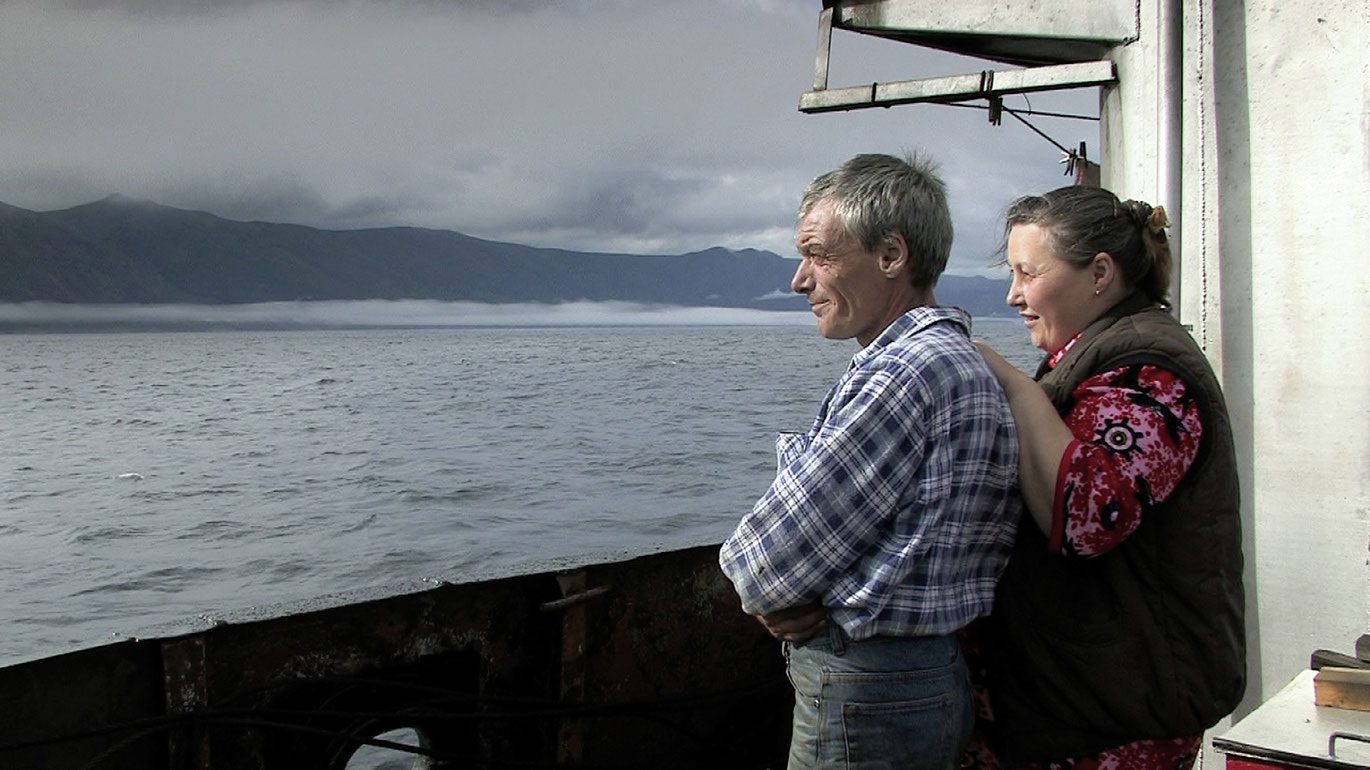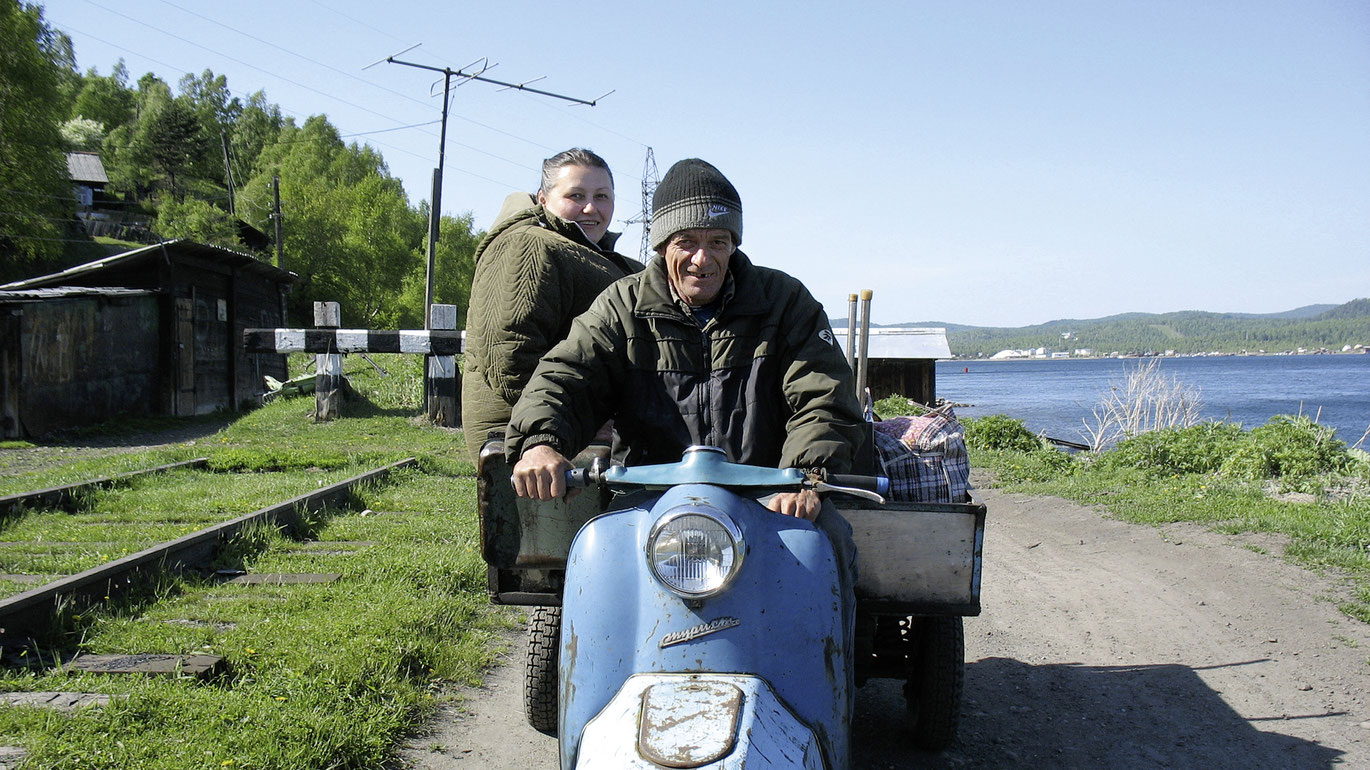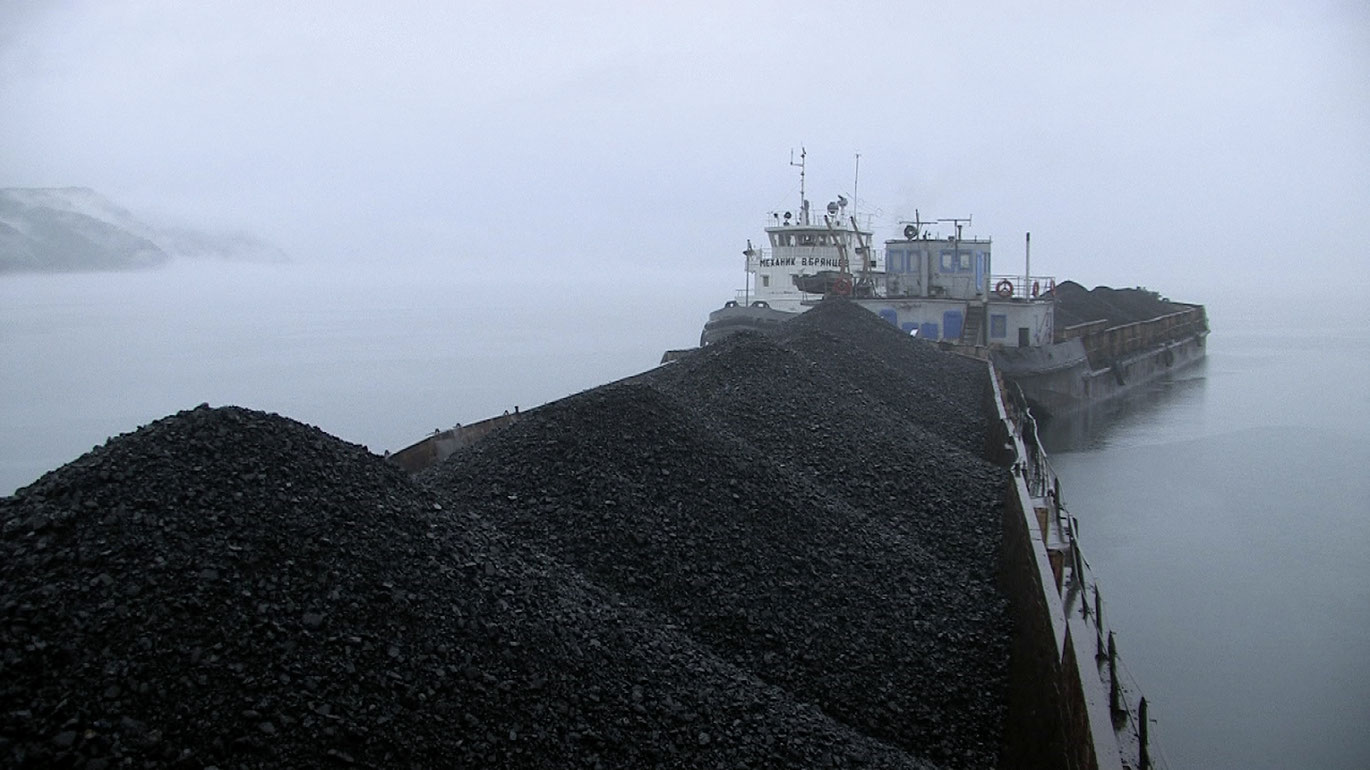Marina and Sasha, Coal Shippers
Waiting "as if for God", two Russian sailors, Marina and Sascha, look forward to the ice-free season on Lake Baikal, where they transport coal on their barge. They take loads on board in Kultuk, and unload them in Barguzin, where they live. This is a precarious business, and they depend on the orders they receive, of which there are fewer and fewer. This would however be the perfect job for Sascha, the silent captain, and Marina, who´s occasionally compared to a seal. She loves the lake, she even loves the storms. During their trips the two work together without quarreling.
In her portrait of these two individuals Ivette Löcker also successfully evoked post-Soviet Russia: The harbormaster talks about "solidarity", though he isn´t always able to help; the workers in the coal port need plenty of time each morning before they´re able to "get going"; the tourists take pictures of the garbage rather than the countryside´s rugged beauty. Marina and Sasha, Coal Shippers is the story of two individuals who don´t have an easy life, though they don´t complain: All they know about other lifestyles is what they´ve seen on television, and they´re satisfied with what the lake gives them. The job they do is wholly bound to the place and an economic system which doesn´t have a future. Marina and Sascha are facing new challenges, and the film accompanies them on one last perfect crossing of Lake Baikal, this natural wonder where time seems to stand still, but only apparently.
(Bert Rebhandl)
Translation: Steve Wilder
Marina and Sasha transport coal on Siberia’s Lake Baikal, hauling it from Port Baikal to Ust-Barguzin on barge number 1315. For them it’s like an island where they can escape the lethargy of everyday Russian life. Their life at sea is full of contradictions: They do this job out of necessity – and also a love of nature. They long for a normal life, but at the same time want to remain independent.
(Ivette Löcker)
Marina and Sasha live on a coal freighter on Lake Baikal in Siberia where they transport coal from Port Baikal to Ust-Barguzin on the barge number 1315. He is the captain and she is the engineer. Their ship provides an escape from the miserable dullness of unemployment in Russia. But life on the lake is full of contradictions: a job out of necessity – and yet also out of love for nature. They both yearn for a “normal” life but still want to stay independent. Finally, they cannot keep their jobs on the ship because too little coal is being transported. Where are they going to find jobs now?
(Crossing Europe Catalog, 2008)
Marina et Sacha, mariniers sur une barge de charbon. Text Français
Dans son portrait de ces deux personnages, Ivette Löcker parvient en outre à brosser un tableau de la Russie post-soviétique : le capitaine du port parle de « solidarité », mais il n'a pas de solution miracle ; le matin, les ouvriers du port à charbon ont bien du mal à se mettre en train ; les touristes photographient uniquement les ordures, pas l'âpre beauté du paysage. Marina et Sacha, mariniers sur une barge de charbon conte l'histoire de deux êtres qui n'ont pas la vie facile, mais ne se révoltent pas : il ne connaissent pas d'autre existence, sauf à la télévision, et sont satisfaits du peu que le lac leur fournit. Le métier qu'ils exercent est entièrement tributaire de ce lieu et d'une forme d'économie qui n'a aucun avenir. Marina et Sacha vont avoir de nouveaux défis à relever ; avec eux, le film entreprend une fois encore une traversée parfaite du lac Baïkal, cette merveille de la nature qui pourrait laisser croire que le temps s'est arrêté.
(Bert Rebhandl)
Traduction: Françoise Guiguet
2008
Germany, Austria, Russia
32 min 30 sec



